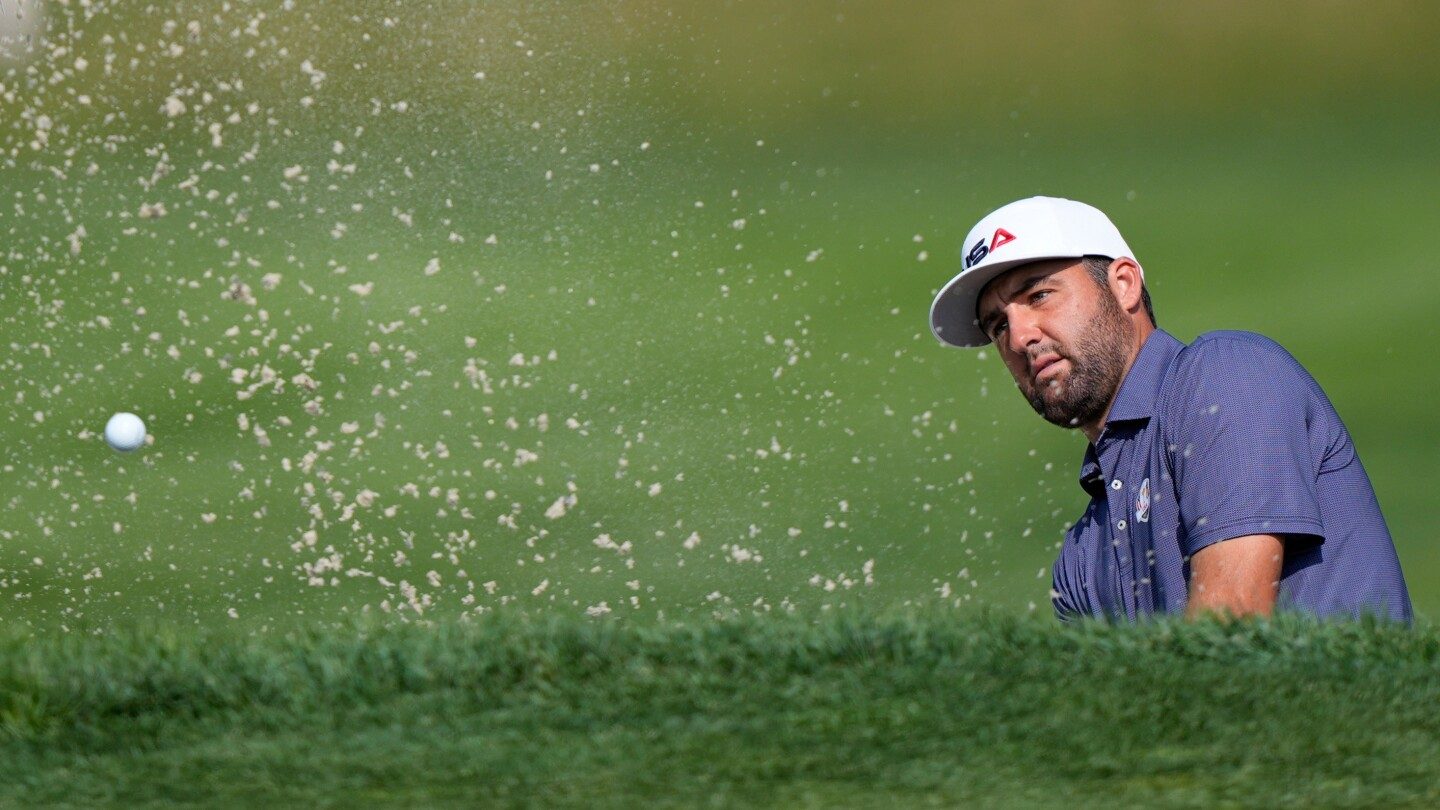Summary
FARMINGDALE, NY (AP) — At this Ryder Cup, American players have become easy targets for Europe, not because of their performance over the past 30 years, but because of the amount they are receiving in compensation. Despite the fact that no American players have expressed any intention of lining their pockets, with the PGA Tour schedule offering prizes of $20 million over 10 tournaments, $25 million at The Players Championship, and $40 million at the Tour Championship, the PGA of America has been “paying” Ryder Cup players since 1999.
This is done through a $200,000 donation that players can direct to the charity of their choice.
This year, the new addition was an increase to $300,000 for charity and a $200,000 stipend for players' personal use. This is considered a form of compensation, even if it's designated for charitable purposes. American captain Keegan Bradley took credit for this initiative. "The PGA of America approached me; they wanted to modernize the Ryder Cup. The amount allocated to charity hadn't changed since 1999, and they asked me to help transition it to 2025," he said.
Key details
Bradley announced he would donate all the money, and his players have said they will do the same, though without providing details. Charity can be a personal matter when it's done with good intentions. "I've never been one to announce what we do," said Scottie Scheffler. "I don't like giving money to charity to get recognition. We have plans for the money we'll receive, and I think it's great that the PGA of America has given us this opportunity."
Over the past two years, Scheffler has earned nearly $57 million in official prize money, so he's not motivated by a $200,000 stipend. This has always been a matter of principle. David Duval was one of the first to question, in 1999, how much money the PGA of America generated from the Ryder Cup and why the players didn't have more influence over its fate.
Rory McIlroy has mentioned that the two purest forms of competition—the Ryder Cup and the Olympic Games—don't offer prize money, but that ignores how the organizations that run them generate revenue. There are sponsors, which are the essence of golf. The Ryder Cup also has a commercial agreement with Sugarlands Distilling Company, designated the "Official Spirit of the Ryder Cup 2025." There are official champagne, vodka, beer, and bourbon, among other products.
Statements and context
Not to be missed is the “Ryder Cup Live Ultimate Watch Party Kit,” which sells for $1,081 and includes items such as 100 napkins, coasters, commemorative cups, and banners. It also includes a pair of paddles that say “Silence Please.”
The uncomfortable discussion about compensation in golf didn't begin this year, or even two years ago in Rome, when Patrick Cantlay was the subject of an unfounded rumor about not wearing a hat in protest of not being paid. There is speculation and accusations, but no one has confirmed that any player on the U.S. team has requested payment or an increase in charity.
Several American players began questioning what percentage of revenue goes to prize money after the USGA signed a nearly billion-dollar television deal with Fox Sports. The US Open prize money increased by $1 million, but it's still money. Golf is currently riddled with it. It's always a bad image.
Europe doesn't need an advantage—it has won 10 of the last 14 editions since 1995—but it looks for any opportunity it can find. And this time, they didn't have to look far. "Personally, I would pay for the privilege of playing in the Ryder Cup," McIlroy told BBC Sport last year after hearing reports of a payment plan for Americans.
What's next?
It wasn't long before others joined the conversation, including the captain, who said two weeks ago: "If American players are being paid and not performing, the New Yorkers could let them know."
This already happened in 1999 in Brookline, when the Ryder Cup money came to light. The Americans fell behind, and the Boston crowd let them know, until they staged a stunning comeback on the final day, which unleashed chaos.
There's no telling what will happen at Bethpage Black, except that it will be noisy. The issue of money becomes an easy target. Xander Schauffele foresaw this situation when the payment plan was announced late last year. "I see it as a lot of money going to charity, and we're going to get a lot of criticism," Schauffele said. On Tuesday, he said he takes great pride in playing in the Ryder Cup and, although he's happy to receive compensation, he plans to donate it all.
And what about the negative perception? "You guys keep talking about this and trying to make it seem negative. It's how each person views it," he commented. "I try to view this as positively as possible: it's an opportunity to do good, which isn't always the case."
The two teams are different in many ways. The PGA of America owns the Ryder Cup. It pays the PGA Tour 20% of the television contract—an estimated $11 million a year—to ensure tour players participate in the matches. In Europe, the event is managed by Ryder Cup Europe, which is 60% owned by the European Tour Group. The proceeds go to support the European Tour. In that sense, perhaps one could argue that the European players were compensated two years ago at Marco Simone, and all the money went to a charity: the European Tour.






